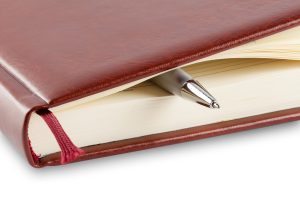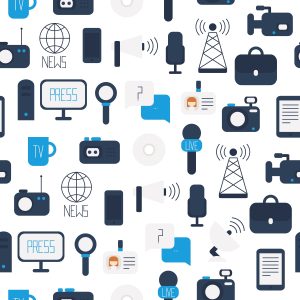 As a newspaper reporter for 20 years, interviewing is second nature to me, but may be intimidating for many. In this series, I share how-to advice for beginners because when it comes to storytelling, interviewing your subject(s) is one of the first vital steps to start. And although it is one of the basics, it is one of the most rewarding steps in the storytelling process.
As a newspaper reporter for 20 years, interviewing is second nature to me, but may be intimidating for many. In this series, I share how-to advice for beginners because when it comes to storytelling, interviewing your subject(s) is one of the first vital steps to start. And although it is one of the basics, it is one of the most rewarding steps in the storytelling process.
I want to offer a few basic tips to prep for the interview and we will go more in-depth about questions as we continue our series in the coming weeks. But for now, let’s just get started!
- Make sure you have the right tools. A good voice recorder is important. Many people like to use the recording devices on their smartphones and there are a variety of other recording options out there. Watch for our reviews on several options in the coming weeks. You also will want to have a good notebook and a few pens – I always like to have at least one backup because invariably your pen will go out on you and it can break up a great moment if you have to go searching for a pen. How do I know? It’s happened to me before and more than once. Many people use laptops or tablets in their interviews now which is great. It’s not as efficient for me because I get caught up with spelling and grammar on my laptop and it distracts me. I guess I’m old school. But find the tool that you are most comfortable with and go for it! I would suggest setting everything up (including that extra pen) before you get started. Rhonda also suggests a back-up recorder just in case, especially if you are interviewing someone that may be difficult to reach again. I am a copious note taker and that is a good thing in an interview. But recording is also wise, because being able to make eye contact with your subject is nice and rewarding.
- Pick a great setting that will put the interviewee at ease. It may be at their home, a restaurant, a neutral spot or even over the phone or via email, but let your interviewee pick the setting. If they are in charge they will be at ease and more willing to answer your questions candidly. If they feel uncomfortable, chances are, the whole interview may turn out that way. A few times I have interviewed teenagers via text. Yes, text! It was comfortable for them and they gave me much more information than one-word answers that often come from teenagers in a face to face or phone call. I always strive to put my interviewee at ease.
- Put yourself at ease. Make sure you don’t have distractions. I always turn my cell phone off (or to silent) and let people know who contact me regularly that I am going to be doing an interview and only to contact me in an emergency. Having said that, I also tell my interviewee that I’m a working mother of six children and sometimes things happen, so they know I’m human. That usually breaks the ice too. I always try to be on time or early so I can give myself a moment of clarity before I start. I often sit in my car and take a deep breath to relax myself and grab all my things and make sure I have them so I’m not shuffling around in my purse or bag before we start.
- Do your homework before the interview, but not too much. Do a little research on the person you are interviewing just so you know what sorts of questions you should be asking, but don’t do too much. You don’t want to find out so much about the person
 that you don’t ask the right questions because you think you already know the answers. Having said that, you may know the person you are interviewing quite well, especially if it’s a family project. If it’s someone I know well, I try not to assume I know things and prepare to ask even the most basic questions, because you never know where that answer will lead.
that you don’t ask the right questions because you think you already know the answers. Having said that, you may know the person you are interviewing quite well, especially if it’s a family project. If it’s someone I know well, I try not to assume I know things and prepare to ask even the most basic questions, because you never know where that answer will lead. - Write down a full set of questions before the interview. I have found through the years that most interviews go way off from where I think they will go but there are some questions you know ahead of time you know you need answered. Write those down so you can refer to them if necessary. Oftentimes in an interview it’s easy to get caught up in the moment and forget the things you needed to know most. If you write those questions down ahead of time you won’t forget the vital information. Plus, writing it down (or typing it) creates a visual for you so you won’t forget once the interview starts. Having said that, don’t get bogged down by your questions either. If things change direction, it’s okay to steer things back, but in my experience when I get a little too obsessed with my “pre questions” the interview isn’t as great.
Okay! Now you are prepared – next topic – the actual interview, where the fun begins. I will talk about this in another post later this week. In the meantime, if you have any questions about preparing for the interview, please don’t hesitate to ask! This is fun and rewarding work, no matter who you interview and I want you to feel at ease.
Subscribe!

Get our weekly email with tips to tell your story and the Sunday Edition. (Free, of course)

 that you don’t ask the right questions because you think you already know the answers. Having said that, you may know the person you are interviewing quite well, especially if it’s a family project. If it’s someone I know well, I try not to assume I know things and prepare to ask even the most basic questions, because you never know where that answer will lead.
that you don’t ask the right questions because you think you already know the answers. Having said that, you may know the person you are interviewing quite well, especially if it’s a family project. If it’s someone I know well, I try not to assume I know things and prepare to ask even the most basic questions, because you never know where that answer will lead.
Thanks so much for your kind words! Please sign up for our interview course to get some more interviewing tips at http://evalogue.life/mini-course/. It’s great to hear such positive feedback!